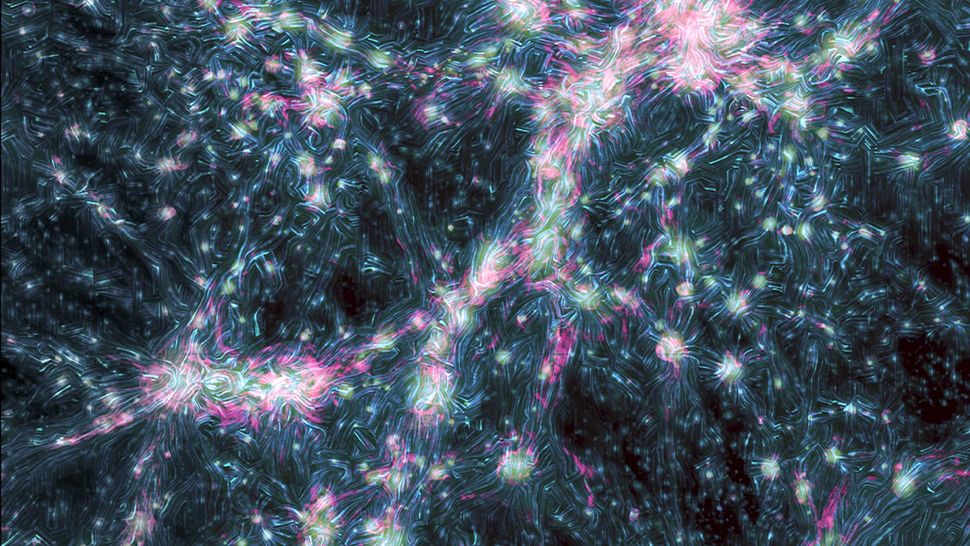The universe's first magnetic fields were 'comparable' to the human brain -- and still linger within the 'cosmic web'
By Harry Baker published 2 days ago
New computer simulations suggest the first magnetic fields that emerged after the Big Bang were much weaker than expected — containing the equivalent magnetic energy of a human brain.

An artists interpretation of magnetic field lines radiating from the cosmic web
The cosmic web, which permeates through the known universe, may contain traces of the first magnetic fields created after the Big Bang. Using computer simulations, researchers now believe they can predict the strengths of these primordial fields. (Image credit: F. Vazza/D. Wittor/J. West)
The universe's first magnetic fields may have been much weaker than we first imagined — and were roughly equivalent to the strength of the magnetic activity within the human brain, according to a new study.
Researchers used hundreds of thousands of computer simulations to examine the remnants of these ancient magnetic fields, which still reside within the "cosmic web" billions of years later.
Magnetism is a natural force generated by the movements of electrical charges and has existed since the early days after the Big Bang, when the infant universe was full of jostling electrically charged particles. Experts have long suspected that the initial magnetic fields created by these particles, known as primordial magnetic fields, were much weaker than those created by complex cosmic objects that exist today, such as stars, black holes and planets.
More:
https://www.livescience.com/space/cosmology/the-universes-first-magnetic-fields-were-comparable-to-the-human-brain-and-still-linger-within-the-cosmic-web
